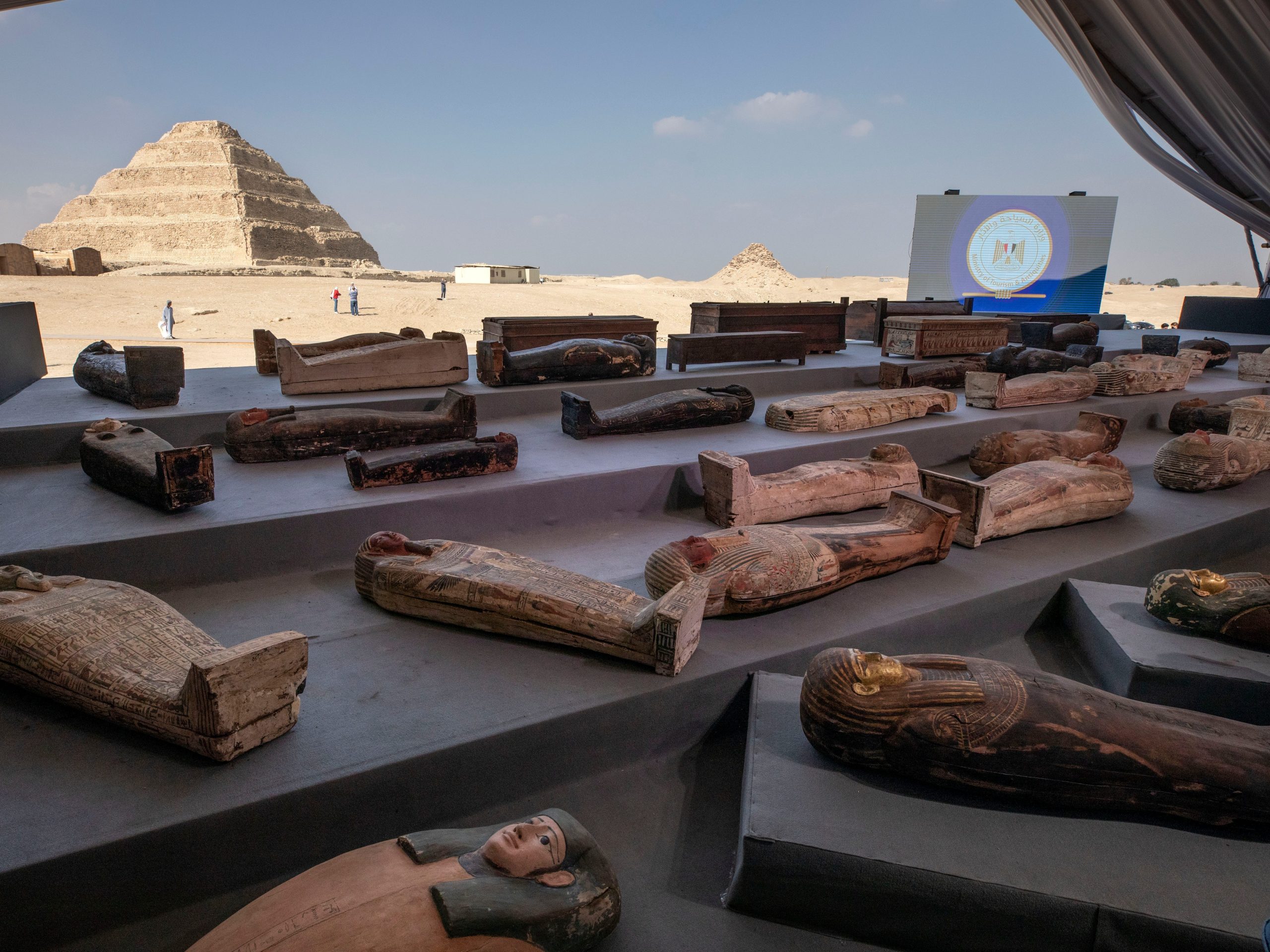
Nariman El-Mofty/AP Photos
- Over 100 coffins, most of which contain mummies, have been unearthed in Egypt for the first time in 2,500 years.
- They date back to Egypt’s 300 year Ptolemaic dynasty from 320BC to 30BC and the Late Period from 664-332BC.
- They are currently being displayed in a makeshift exhibit at the feet of the famous Step Pyramid of Djoser.
- Visit Insider’s homepage for more stories.
Over 100 coffins, most of which contain mummies, have been unearthed in Egypt for the first time in 2,500 years.
They were discovered at the Saqqara necropolis, a vast burial ground in Egypt’s ancient capital of Memphis, excavated over three years, NBC News reported.
Archaeologists also found a well-preserved mummy wrapped in cloth, which they later X-rayed to find out how the internal structures had been so well intact, according to al-Jazeera.
Tourism and Antiquities Minister, Khaled el-Anany said that “more than 40 artifacts” had also been found, including funerary masks, figurines and statues, the majority of them gilded, NBC News added.
He told a press conference that they dated back to Egypt’s Ptolemaic dynasty, which ruled for around 300 years from 320BC to 30BC and the Late Period from 664-332BC, The Guardian reported.
The sealed sarcophagi and uncovered statues are currently being displayed in a makeshift exhibit at the foot of the Step Pyramid of Djoser, at the Saqqara necropolis.
However, el-Anany said that the artifacts would be moved to at least three Cairo museums, including the Grand Egyptian Museum currently being built at the nearby Giza pyramids, Sky News added.
Saqqara received a UNESCO World Heritage Site listing in 1971 and has been at the center of other recent discoveries in recent years, including two mummified lion cubs, according to NBC News.
El-Anany added that another discovery from the Saqqara necropolis would be announced later this year, AP reported.
